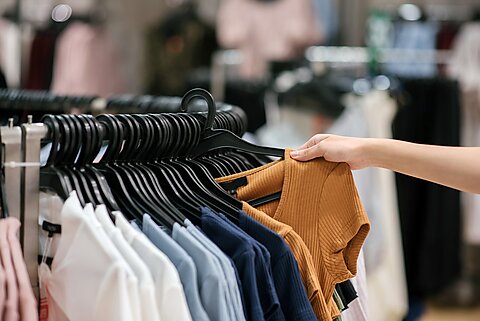The recent Wall Street Journal article, “Meet the Shirt Maker Who Loves U.S. Tariffs,” is a modern (and frustrating) version of French economist Frédéric Bastiat’s classic parable of the broken window. It praises the “seen” benefits of US apparel tariffs—the handful of American manufacturers whose products have “again become competitive in the global marketplace”—while totally ignoring their many “unseen” costs.
Most obviously, the article refers to the higher prices that American consumers will now pay for clothing as merely something US importers “say” might happen, when in fact we know from recent experience that these costs are real and significant.
According to the US International Trade Commission, for example, the “Section 301” tariffs on Chinese apparel imports—the very tariffs at issue here—increased the price of Chinese apparel by 14.5 percent, the price of US apparel by 3.1 percent, and average US apparel prices overall by 4.3 percent. That’s an invisible tax of more than $3.5 billion in 2021 alone—one that was disproportionately paid by lower‐income American consumers and that constituted money that couldn’t be spent on other, more productive US enterprises.
Also unseen is the fact that, again per the ITC, the China tariffs resulted in only a modest (6.3 percent, or about $770 million) increase in American apparel production that same year, because US consumption shifted not to American‐made clothing but other import sources (a 25.2 percent increase in 2021). Overall, therefore, the US economy has suffered yearly tariff‐related losses more than four times as large as the gains the article cheers—a miserable result that’s anything but surprising given that the same commission in 2017 found that the removal of earlier US apparel tariffs would increase net US welfare by $2.4 billion.
And for what? Suits, t‑shirts, and jeans have no national security implications, so economic losses from forcing their production onshore are not “strategically” justifiable (non‐China imports notwithstanding). Production jobs in the domestic industry pay as little as $11/hour and only a few dollars more in New York City, where the Journal article’s chief protagonist is located (and where fast food workers make almost as much). The manpower and other finite resources directed to tariff‐protected industries also now can’t be used for other, more productive business operations in the region—another unseen cost of protectionism.
Call me a heartless globalist if you must, but the US government shouldn’t be in the business of regressively taxing the clothing purchases of Americans still reeling from inflation, all to support—at a substantial net loss—relatively low‐paying apparel jobs in the Big Apple. It’s a bad policy, and certainly nothing for a newspaper to cheer about.

